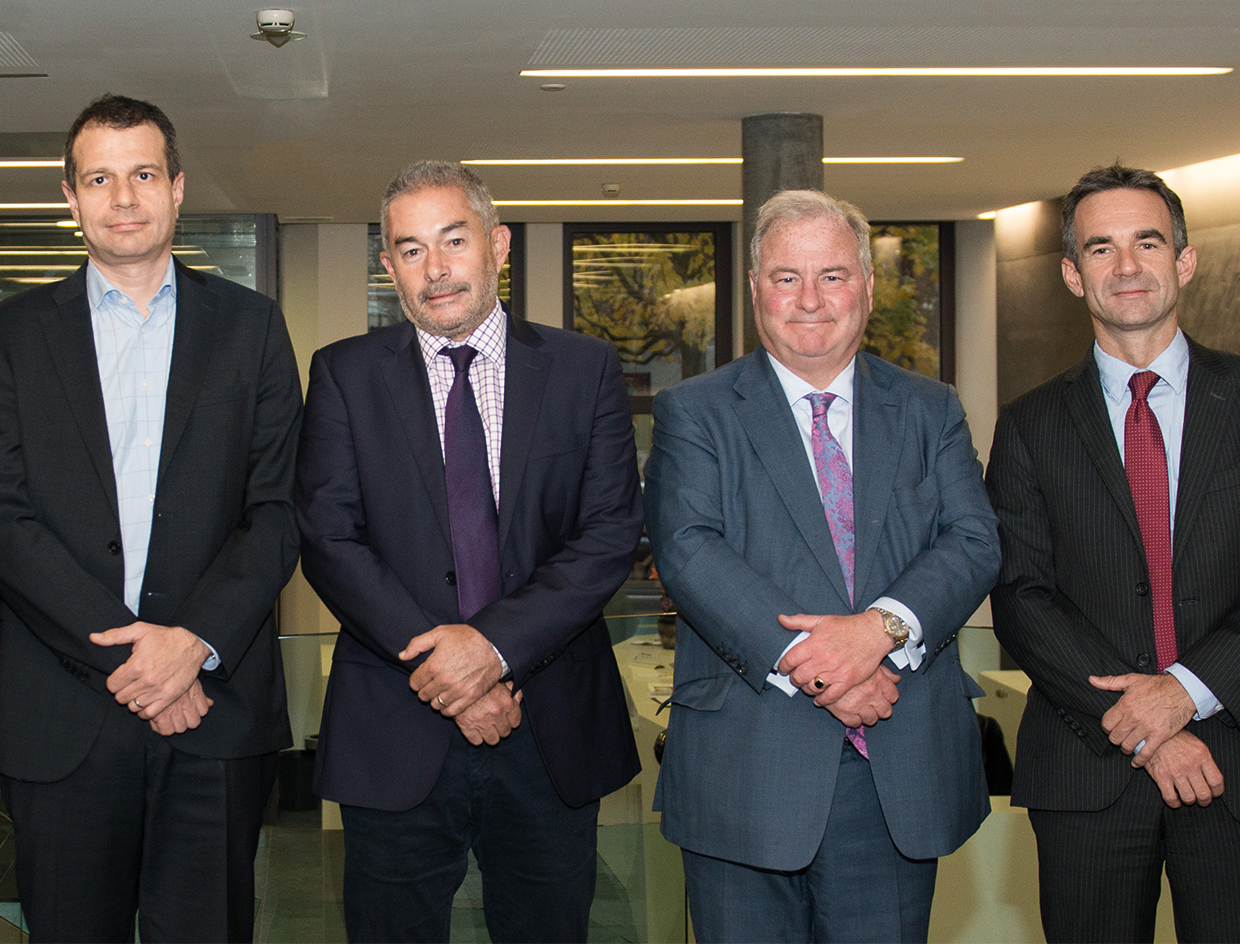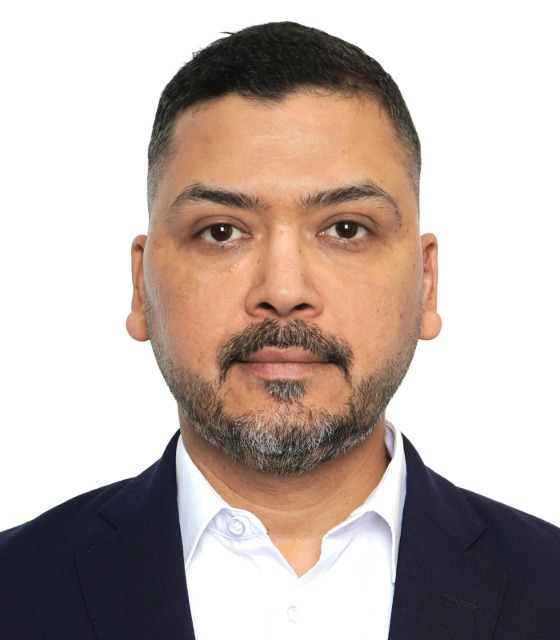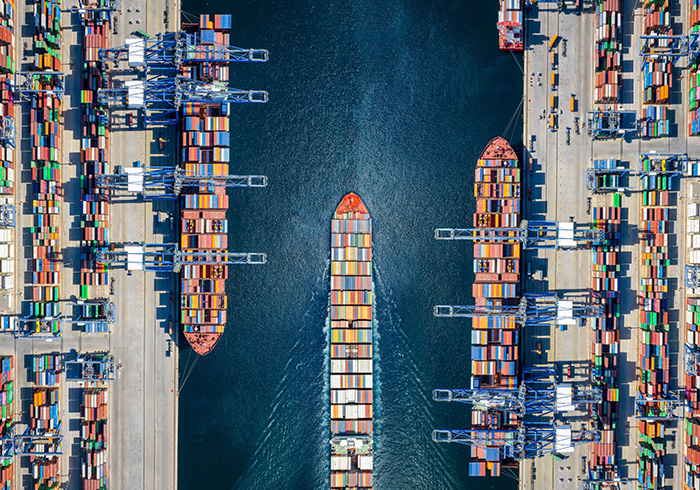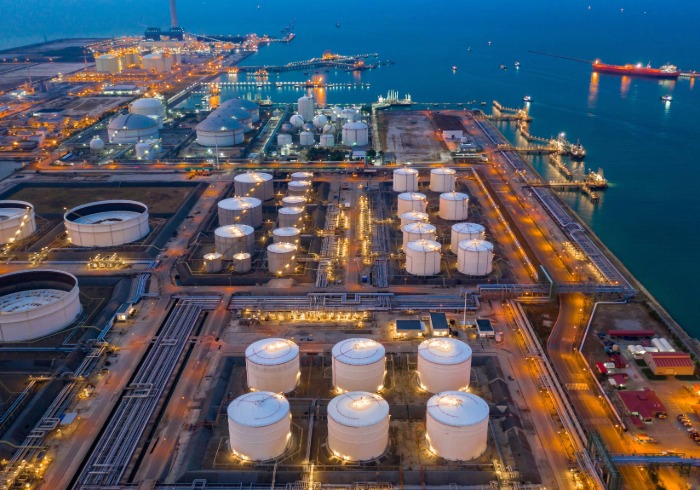Focus on sustainability and corporate responsibility in commodity supply chains is increasingly in focus, pushing traders to support more sustainable production processes. GTR gathered a group of traders to discuss the challenges and opportunities they face.
Roundtable participants
- Olivier Boujol, director, global head of structured trade finance, Archer Daniels Midland (ADM)
- Sebastian di Paola, partner, PwC (chair)
- Andrew Gowers, head of corporate affairs, Trafigura
- Guy Hogge, global head of sustainability, Louis Dreyfus Company (LDC)
Di Paola: As more companies realise they have the power to make a change, they are increasingly taking steps to transition to more sustainable supply chains. What are the key areas of concern within your sector?
Hogge: As a starting point, we would group our main sustainability concerns into two broader categories: environmental issues and human rights-related challenges. Both are really of equal importance to LDC, and most sustainability-related issues that we face in our industry fall under those two headings.
From there, you can distil these concerns more finely around issues like deforestation, planting on peatland, water-related waste or waste in general. Our human rights concerns focus more on labour practices, on the prevalence of forced child labour in agriculture. This is a big issue and an area where, in the commodities sector in general, we share a lot of common ground with other merchant companies.
Boujol: We worked extensively in delineating what was important for our stakeholders. We undertook a project a few years back just to identify the areas that were important for our core business and product; be that economically important, for the environment, impact on labour or impact on social. We came up with a grid that went on highest impact on stakeholders and highest impact on ADM, and came up with about 12 different items, ranging from human rights to supply chain management and food safety.
Di Paola: In terms of the traceability challenge, where does that fit in?
Boujol: Supply chain management is an integral part of our sustainability programme, so we combine food safety and supply chain management under the same umbrella.
Hogge: Supply chain management is certainly an area of our business that is significantly impacted by our efforts in sustainability. One example of this impact is the new policies we’ve put in place, which address our palm oil supply as well as other products and supplier education, based on elements that are important to us.
Similarly, in coffee, we come into contact with smallholder farmers whose challenges are very different to industrial-scale farmers. For us, the challenge is where you do not have full visibility of how a commodity is grown or produced, so you may be having first sight of a cargo when it is loaded at the port in the country of origin. Not having a presence alongside farmers requires a different approach. But yes, supply chain management is elemental to the adoption of sustainable best practice, if you can influence that.
Di Paola: How does this contrast with key challenges for you as an energy trader?
Gowers: A key difference between energy and metals trading vis-a-vis agricultural products trading is that we are that little bit further away from the consumer. That is not to say it is a place to hide, but it means that the route through which issues arrive at our door is slightly different. If you break the issues down into categories, I would say there are broadly three:
Managing risk in the supply chain. We are not big producers; we are big buyers and sellers. However, we are finding it increasingly incumbent upon us to step up due diligence on the provenance of materials that we are buying, especially in high-risk geographies. There is the issue of child and slave labour in the informal mining sector, particularly in some of the very resource-rich countries in Africa, such as the Democratic Republic of Congo (DRC). We are currently conducting an exercise to audit our supply chain in DRC. That is not an exercise that to my knowledge any companies in the metals business have yet done. But we are increasingly finding downstream customers, smelters in industrial countries, asking, ‘what can you show us by way of due diligence on your supply base? How can you assure us that you are not buying material that is produced in unacceptable ways?’
The second area that has shown a need for illumination is the question of revenue transparency. This is a big focus of non-governmental organisation (NGO) activity. It has given rise over the years to the extractive industries transparency initiative (EITI), which is a very unusual but ambitious attempt to shed light on what revenues are being generated in resource-producing countries from those resources, for the benefit of the citizens. The background to it is the widespread concern about the resources curse: that citizens of poor countries with large resources and poor governments are not getting a fair share of the revenues. The EITI is a start towards shedding some light on that. We became the first trading company to subscribe to and make disclosures under EITI.
The third area is really just continuously improving the management of our physical operations; making sure that the full range of physical risks are fully taken into account when transactions are booked, and that our standards of contractor management are in place. As you know, a lot of the work done by commodity trading firms is done by third-party contractors. If we establish standards, it therefore follows logically that we need to communicate those standards, and where appropriate audit whether those standards are being applied.
Di Paola: Where has the pressure for change along supply chains come from? Is it being driven by increased public and consumer/buyer awareness or changing investor demands?
Hogge: ‘All of the above’ is probably a fair reply. As a sector, historically our default would have been that information and knowledge was trading advantage, and therefore we didn’t tend to comment on any topics related to our particular supply chain. This is going back a significant distance in time. There has been a gradual realisation, particularly driven by people wanting to know more about the food that they consume and taking more of an interest in its provenance and how it’s produced, that we had to evolve past the shielding of that sort of information.
Certainly, the ultimate consumer is much more aware, much more demanding, and has significantly more choice in terms of what they consume, particularly in the developed markets.
Initially, companies like ours would have been more reactive to that sort of pressure, whereas the evolution now is that we have much more embedded approaches as an industry to traceability measures, to supplier codes of conduct around the sorts of behaviour and practices that we expect from the people that supply us.
We have much more engagement from a variety of stakeholders, about what sustainable production looks like. The definitions are significantly clearer. That whole area of what would once have been considered perhaps a competitive space, and therefore one not really to create joint definitions around, has transformed.
I think every group of stakeholders today is very much engaged in the sustainability discussion. Certainly, in trade finance, the banks are much more engaged and aware, and demanding or wanting to know that the money they are providing us with is being spent in a responsible and sustainable way. That is perhaps a slightly more recent evolution, but the depth and extent of questions and discussion that we find ourselves participating in today is very much more detailed.
Di Paola: You said that you are beginning to influence quite strongly how your supply chain behaves in this area, but it’s not seen as a competitive factor. Could it become a competitive factor again?
Hogge: We are certainly in discussion with our peers on this topic. We see it as essential that we are involved in setting the landscape and driving the sustainability agenda, given our profile and our prevalence in most of the markets in which we operate. And we are perfectly open to them coming along with us in this process.
Gowers: From your point of view as Dreyfus and ADM, does any of it actually constitute competitive advantage? Or on the contrary, is it that a problem for one in this area could be a problem for all?
Hogge: I think it is a combination of both. There is an increasing recognition, for example, that ‘brand palm oil’ has a big problem, so some sort of collective addressing of well-documented issues and challenges makes a lot of sense. But the starting point for us as a company is to set clear commitments and policies, and to communicate our sustainability expectations to our suppliers. Another feature of commodity markets by definition is that we tend to buy from the same pool, particularly in the case of palm. Therefore we have a collective role to improve that brand’s profile.
We do that through various channels: commodity roundtables, supplier engagement, delivering the same message to the same suppliers from all of us, as a means to effect change. We are very much encouraged to do so by our various stakeholders, particularly NGOs and the banks, who we all tend to have the same relationships with.
Boujol: I agree that yes, it is a competitive advantage. No doubt. The increased pressure on all the items you just mentioned, whether it’s environment or social matters, has increased dramatically in the past few years. As a large public company, not having a very sound and advanced and proactive sustainability programme is definitely a competitive disadvantage. We advertise it and you can see this on our website; the documentation we’ve posted there on sustainability is possibly even more detailed than our financial results. But I think to Guy’s point, these days, we are in the spotlight.
Di Paola: Are the pressures different for an energy trader?
Gowers: The starting point is different. In the case of energy and metals trading in general terms, but also in the case of Trafigura, it’s been a question of addressing the issues to do with trust. When I started in this job more than four and a half years ago, those who came here before me had undertaken a study of our reputation among our banks, and the most important message was: ‘We respect Trafigura as a very successful business, but we need you to be more open and transparent about what you do and the issues you face.’ Therefore, coming into this role, there was a call to action around how we addressed this.
The first thing you do is you disclose more, so we start producing our annual report for the public. We’d always had an annual report for the banks, but there it was on public display in 2013. As you start to disclose things, you also gain confidence to engage with the world, including groups that are critical, and that leads you to disclose more.
Now, to the point of competitive or pre-competitive, it’s a sad fact that co-operation among energy traders and metals traders has proven rather hard. The competition is fierce and that can make the conversation difficult. We concluded some time ago that, for the time being, we mostly had to plough our own furrow on this and establish this as Trafigura’s message in the absence of public disclosure by other companies. That’s pretty much still where we are; we’ve had some very good discussions with one or two other companies, it’s not to say that nobody else is doing a thing; but getting some kind of organised process in place is very hard.
Di Paola: Is that more organised process more prevalent in your industry?
Boujol: I think it is. It is no different to a business plan in the end. Sustainability requires tangible results. It requires a strategy, it requires an action plan, it requires something that the public can monitor. That’s probably why the likes of ADM, Cargill and Dreyfus have started to publish much more comprehensive reports with key metrics that we can show and demonstrate.
It’s not just a case of being a member of 200 associations or conducting discussions, it’s about saying: ‘Hey, this is what we’re really achieving.’ We reduced our emissions by 20% in the last five years, so we mean it, and it’s measured and monitored by the likes of Bureau Veritas. We show to the public that we are effectively taking action and that those actions are translating into tangible results.
Hogge: There’s something I wanted to mention around the issue of stakeholders: one important group are the new people that we recruit. They are much more ‘au fait’ with this whole area of corporate responsibility in terms of approach to business, and are almost more demanding than the general public when it comes to knowing what the company or institution that they’re about to join is like, from a knowledge perspective, but also in terms of their expectations of us. I think the outlook, going forward, is much brighter in this area. People from my generation and those that came before were perhaps much more sceptical, whereas now that’s disappearing as we move forward in time.
Gowers: We have drawn huge encouragement from this because as we started disclosing what we are doing on the responsibility front, one of the most enthusiastic responses we got was from interviewees for jobs with Trafigura. A couple of years ago, our HR people said, spontaneously people are answering the question ‘why do you want to work at Trafigura?’ in a different way. Previously they were saying, ‘because it’s big, it’s successful’, all the things that they thought their interviewer wanted to hear. Now they are saying, ‘actually, because it’s the most transparent’. This is music to our ears. Also, you can hear traders saying that the fact that we have done this work to improve how we’re seen is getting us in doors that five years ago we couldn’t have got in. And so it is a competitive advantage.
Di Paola: On the topic of compliance, it is one thing to talk about industry initiatives of developing common standards and signing up to those standards, but to what extent do you see regulation as part of the solution?
Hogge: A lot of legislation addresses issues that responsible actors would claim to be doing anyway, particularly for legislation on poor labour practice, which is attempting to achieve the eradication of certain labour practices.
Around other elements, they are more voluntary. I would say you are looking at guidance or recommendations, rather than hard law around particular environmental practices. A lot of law has been left to individual countries. There is an expectation, in many instances, that you need to go beyond the law, because the law in certain territories is deemed not to go far enough, or not be robust enough, or is still embryonic, so it will take years to for it to finally be enforced. And that is where standards and individual company policies and practices can step in, where the law perhaps doesn’t.
Gowers: I think what we are increasingly observing is that the hiding places are getting smaller and harder to find, and that is a good thing. I am not saying it is a good thing that there are multiple jurisdictions all seeking to regulate in completely different ways. That is a problem. If you could have more agreement on international norms that would be a good thing, and a global industry like commodities trading should welcome that. What is really a bad idea is individual jurisdictions seeking to go out ahead of the rest and gold-plating regulation and thus creating competitive distortions in the market.
One example that we think is really quite concerning is the debate in Switzerland around creating requirements and obligations that go way beyond international law. In the most extreme form under the corporate responsibility initiative, this could actually create a situation where the Swiss legal system and regulatory authorities are somewhat being set up as a sort of global policeman. It is way beyond the capacity of an individual nation, however wealthy and sophisticated they are to do that, and that would create a competitive distortion of a serious kind.
Di Paola: Let’s take that issue. All of you are very present in Switzerland. How do you see this?
Gowers: I think it is a concern for very large swathes of business in Switzerland. Although I think the proponents of the initiative often use the commodity trading industry as their sort of poster child of capitalism to attack, it is actually something that would make life very difficult for companies doing business internationally of whatever kind in Switzerland. It aims to create a legal requirement that firms document their due diligence on how they handle human rights issues around the world in Switzerland. I have never heard anybody who can say convincingly how a law of that kind could possibly be drafted, let alone enforced.
Boujol: I think, collectively, commodity trading companies and multinationals are going to have to lobby once again and make sure that the public understand a matter that is relatively complex. I think the bad publicity is more of a concern. They seem to be coming year after year with a new set of initiatives which are detrimental to the multinationals in Switzerland. I think we still have a strong competitive advantage in Switzerland, but I’m personally concerned having worked for multinationals for 20 years that one day one of these laws will go through, and then how are we going to handle that?
Hogge: Generally, I think there is a considerable lack of understanding of the realities of how our markets function. In terms of the margins we work on, which are sometimes negative, through intense competition, that is certainly not something that’s widely understood, and when it comes to the role that futures markets play in securing protection against some of the risk that we face, the alternative is unthinkable. That is certainly something that is very much misunderstood by a number of different stakeholders.
Gowers: It is a never-ending job, demystifying this business. The level of understanding of it is low. I would say that the industry, certainly on the energy and metals side of the house, has itself to blame, because for a long time, everybody behaved as if it was nobody’s business but their own. Trafigura has tried to produce a lot of publications and material to explain in hopefully objective terms the service physical commodities trading performs do. It’s not a speculative, casino activity; it’s actually a physical logistics business that supports global growth. We also need to win friends in Switzerland, because even in mainstream Swiss business I don’t think commodity trading is understood. It’s seen as a bit of an interloper which is different from the commodities trading that was in Switzerland in the middle of the 20th century.
I think it’s a big mountain to climb, to be honest.
Hogge: I think another element as well is around divergence – it seems that the middle ground is sort of lost. All we can do is be more communicative about the realities of how we operate and the space in which we operate. Putting more and more information into the public domain and responding positively will be key. This communication is moving from a marketing tool to effectively a license to operate. The people who ignore it or don’t pay enough attention will either form a different tier or disappear.
Di Paola: What are the key bottlenecks in your view that need to be worked on?
Gowers: If you take the supply chain issue, that’s definitely rising in salience very fast, not just among customers but also in the world of government and NGOs, and at some level it’s a collective action problem, because it is a very big issue. We are doing what we can at the level of one company but let’s not get ahead of ourselves; it is going to require co-operation between many different parties and stakeholders. How that is going to go is hard to predict, but you have to start somewhere.
Boujol: I think that’s an opportunity more than a threat for large supply chain organisations. It is about seeing, observing and assessing what is out there. Our team should be in all domains, whether it is business, compliance or sustainability, designing the next step and crafting and designing the future. I don’t see that as a bottleneck or as a threat; I think that is a new world that we are inventing together. The more we can be ahead of the game, the more we will be able to compete and create the change for the consumer. An analogy would be Apple. They don’t wait. I think we should not passively wait; I think we should anticipate and go for it.
Hogge: One of the challenges really is around mindset change. A trading company, by definition, focuses on three to six months into the future. A lot of the issues we face in agriculture in particular are around climate change, decline in yield growth, around resource shortage, around population growth and urbanisation, demand for protein, are medium to long-term concerns. If we are not thinking about game-changers and how we might position ourselves for dealing with all these challenges, we will always be trying to play catch up.













